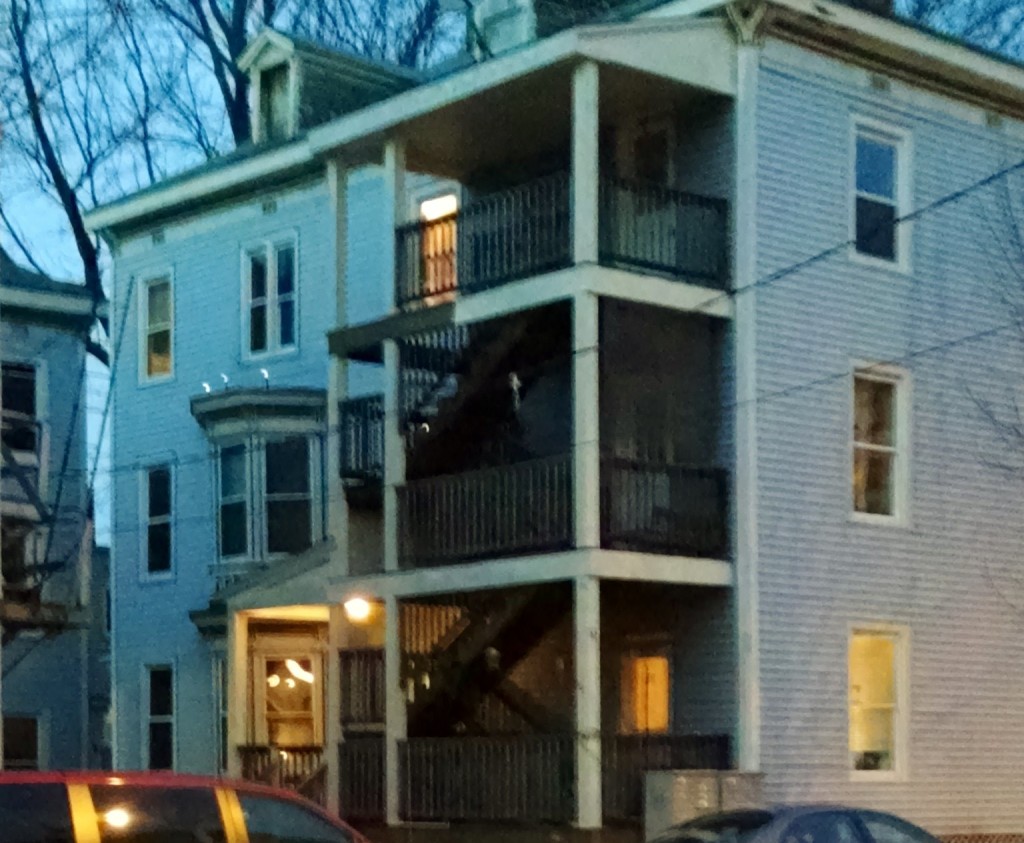By Tony Zeli
Here is a round-up of the five ballot questions that will face Portland voters on November 8th.
Question A – Local Ownership of Short-Term Rentals
An Act to Regulate Short Term Rentals in Portland and Prohibit Corporate and Absentee Operation of Short Term Rental Properties
The first of two ballot questions on short-term rentals, Question A prohibits corporations and “non-local” operators from registering short-term rentals in the city. It defines a local as having a primary residence within 20 miles of Portland. And they must be a “natural person,” so corporations need not apply. There is a workaround for non-locals. They must designate a local response person who is available 24/7 to respond to complaints within one hour.
Question A also seeks to prohibit the eviction of tenants in order to convert units into short-term rentals. Also it prohibits the conversion of affordable or workforce housing. And the proposal increases the penalty for providing false registration information from $1,000 to $1,500. The Question also removes the City Manager’s discretion from revoking the registrations of disorderly properties.
Question B – Reducing the Number of Short-Term Rentals
An Act to Reduce the Number of Short Term Rentals in Portland
Question B would restrict all short-term rentals in Portland to owner-occupied, tenant-occupied, or owner occupied two-unit buildings. The question requires the city clerk to notify all neighbors within 500 feet of a newly registered unit, increases penalties and strengthens enforcement of violations, and requires the logging of complaints.
Question B changes the fee structure for short-term rentals. It removes the current stepped fee structure of $100 to $4000, which is based on type of unit (owner occupied/non-owner occupied, island/mainland) and number of units the owner has registered. Under this provision, the fees would be simplified to $250 per unit for owner- or tenant-occupied units and $750 for non-owner or non-tenant-occupied units in two-unit buildings where the other unit is owner-occupied.
And Question B further limits the total number of short-term rentals. Currently the number is capped at 400. This question lowers it to 250. To be more precise, the new cap would be 1% of the total number of long-term rental units registered in the city or 250, whichever is fewer.
Question B adds penalties for violations of the short-term rental ordinance that would start at $1000 per day and go up for subsequent violations. Any complaint about a short-term rental unit from the public shall be logged by Permitting and Inspections who are directed to investigate and enforce the ordinance. This proposal also removes the city manager’s discretion from revoking registration for disorderly houses.
Question C – 90-Day Eviction Notice & Rent Increase Cap
An Act to Protect Tenants in Portland

Question C institutes a 90-day notice for lease termination for all tenancies. Currently the ordinance only requires 90-day notice for at-will tenants, or those who do not have a lease. This proposal also bans raising the rent after an eviction.
Question C restricts deposits to an amount equal to one month of rent. It prohibits application fees including for criminal background checks and credit reports. Currently application fees are capped at $30.
The Question eliminates the tax rate rent adjustment, which allows landlords to account for higher city taxes when adjusting rents.
If passed, Questions C strengthens tenant rights. It removes reference to tenancies-at-will in the current ordinance to say all tenants must be provided a minimum of 90 days written notice with exceptions, such as “for cause” evictions, short-term rentals, and where landlords provide payment equal to one month’s rent for 60-day notice or two months’ rent for 30-day notice.
Question C provides greater authority to the rent board giving their penalties the “highest enforcement priority” for the City. Also, it creates a voluntary tenant union registration process within the Housing Safety Office. Tenant unions can represent complaints directly to the rent board.
If passed, at least 5 of the rent board members must come from the 5 city council districts with the highest concentration of rental units. If the charter commission question adding city districts does not pass, this provision will have no immediate consequence because there will only be 5 districts.
Finally, Questions C sets a $25,000 fee for condominium conversions. Currently, the city council determines fees for converting rental units into condos.
Question D – Increases Minimum Wage & Creates Dept. of Fair Labor Practices
An Act to Eliminate the Sub-Minimum Wage, Increase Minimum Wages and Strengthen Protections for Workers
Question D increases the minimum wage in Portland to $18 per hour over three years. Currently, the minimum wage is set to increase from $13 to $15 over 3 years. This ballot question also eliminates the tipped minimum wage. Tipped workers would earn a minimum of $18 per hour plus tips. Currently, tipped workers can be paid less than minimum wage if their tips make up the difference.
Also, Question D includes independent contractors who are excluded from minimum wage requirements today. Specifically, the ordinance mentions taxi drivers and ride-handling workers (such as Uber/Lyft), and personal shoppers and delivery workers (like 2DineIn or DoorDash).
The proposal creates a new department headed by a new Director of Fair Labor Practices, who oversees the minimum wage and all laws and regulations pertaining to labor practices in the city.
Question E – Cruise Ship Passenger Limit

An Act to Restrict Cruise Ships in Order to Reduce Congestion and Pollution
The final of five ballot questions is Question E, which asks voters to limit the number of passengers who may disembark from cruise ships in the city to no more than 1,000 people in total per day. If passed it goes into effect in 2025.
To review the ballot questions as they will appear on November 8th, visit City of Portland’s election page.
Tony Zeli is publisher and editor. Contact him at thewestendnews@gmail.com.





